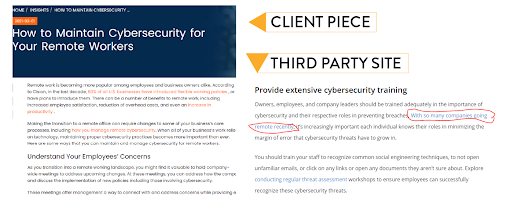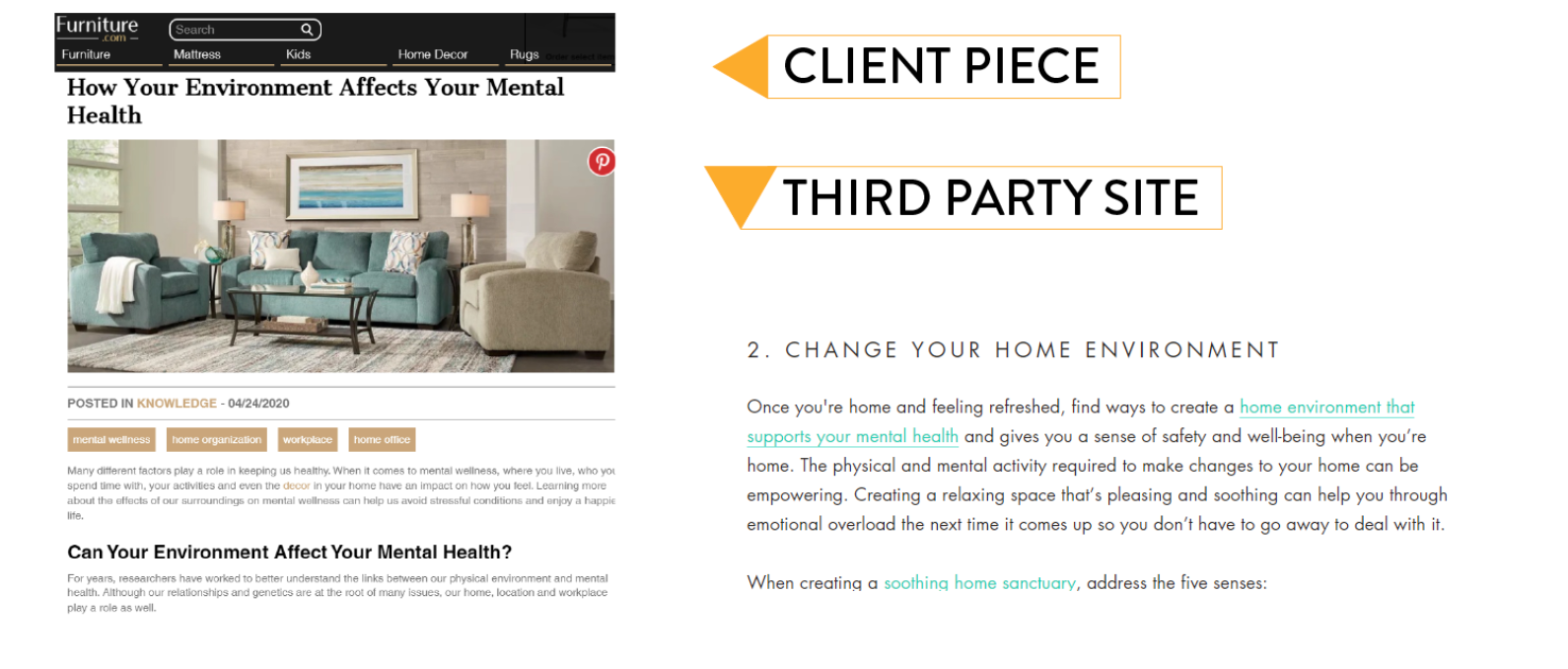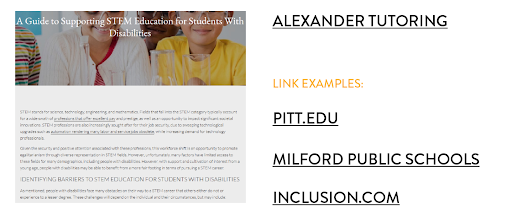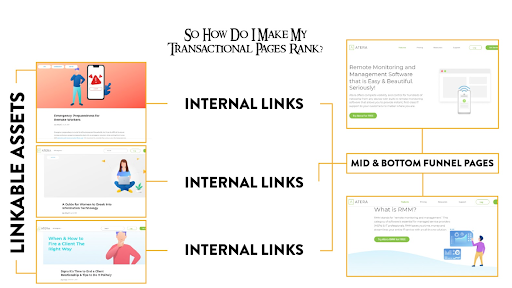Link building campaigns not giving you the results you expect?
You aren’t alone.
Most brands struggle to build links – not because of their outreach but because of their content.
On September 1, I moderated a sponsored Search Engine Journal webinar presented by Michael Johnson, Partnerships Development Manager at Page One Power.
He shared creative ways to create linkable content, whether you’re an experienced link builder or just getting started.
Here’s a recap of the webinar presentation.

Most people think of link building as an outreach-focused activity, and it is.
People often view outreach as a problem, but outreach isn’t the problem.
Often the problem is that there isn’t enough quality, linkable content that is engaging audiences.
What Makes Link Building So Hard?
It Involves Another Person
You can usually handle every other aspect of your search engine optimization within your organization.
However, to get links, it isn’t just about us and our motives, but also about tapping into other people’s motives.
Webmasters Are Savvier Than Ever
Links are valuable, and webmasters are accustomed to getting requests for links.
In many cases, link builders send outreach that is of little to no value to webmasters or ask for links to advertorial pages.
Therefore, unless you provide their audience with something of value, it’s going to be a challenge for you to earn links.
Relevancy-First Link Building
Ever since PageRank (PR) was made visible by Google, SEO professionals have chased authority metrics such as domain authority (DA) or domain rating (DR) to measure websites.
That isn’t to say those aren’t important, but they should not be the primary consideration in measuring the quality of a site.
Use relevancy as your quality indicator.
Google’s John Mueller even mentioned in an interview that the total number of links doesn’t matter at all.
In other words, relevance is the critical factor that Google looks at when measuring the quality of a link.
Relevance will discern:
- What to create: Using relevancy first will help you know what kind of content is needed. Then, you’ll know what’s relevant to your target audience.
- Sites to target: From the piece of content you created, you’ll know what’s relevant from the target audience’s perspective.
- The value you can provide: By the time it’s time for your outreach, you’ll know what kind of value you can provide because it’ll be relevant to the steps that preceded it.
People view links as this commodity that you go out, and you buy them, and you just get them.
High-quality links aren’t just handed out. They’re earned.
By shifting your focus from getting the highest possible domain authority to creating a sustainable approach of quality backlinks, you can make your business more successful over time.
Types of Linkable Content
Informational & Educational Articles
These are 800 to 1,500 word long pieces that cover a topic that connects your brand to topics/audiences that have blogs/publications dedicated to them.
Write a piece with helpful information that will be easy to reference from within an article and don’t include promotional language or have a brand focus.
Informational articles will enable you to have content that you can reference in guest posting efforts or parts that you can recommend as sources for HARO requests.
Linkable Article Example: Client That Does Cloud Services
This piece built a bridge between Page One Power’s client in the cloud industries services and cybersecurity/remote work.

In stepping outside of cloud security, they went into something still relevant to cloud services, like cyber security with tech websites, IT websites, and remote work opportunities like HR, business, and lifestyle blogs.
It allowed their writer to create this article for a third-party site in which they were able to get a link.
Linkable Article Example: Client in the Furniture Industry
Page One Power came up with topics from other areas of life to expand the client’s sphere of relevancy.
So they talked about how your environment can influence your mental health.
With that, his team reached out to both design decoration websites and mental health wellness websites.

This piece helped connect the client’s ecommerce client’s site to blogs and publications that discuss mental health.
Linkable Resource Guide
This long-form content is usually 2,500 words or longer and targets a specific audience with valuable resource pages dedicated to them.
This piece will help you earn links from resource pages on sites dedicated to the relevant audience you’re targeting.

Linkable Article Ideas
Johnson showed ideas for how they could create linkable content for a commercial roofing company. You would think that it doesn’t sound like a lot of fun or very linkable. It’s B2B and very niche.
Here are some opportunities to set them up for success:
- Finance: Talk about repair costs, how to budget.
- Social Justice: Talk about ADA compliance, accessibility.
- Construction
- Health and wellness: Talk about asbestos and mold.
- Mental health: Talk about new environments.
- Tech: Talk about security systems.
- Small business blogs
Linkable content connected their site to blogs/publications dedicated to business owners.
It gave them a quality piece to reference within the guest post they create for those sites.
However, if you try to include links to promotional pages within guest posts, you will likely get links stripped, or be asked to pay.
How to Create a Resource Guide
Following the previous sample website, Johnson considered what topics would work well for a roofing company.
While it’s tempting to build guides with your direct audience in mind, this will not reach a broader audience.
However, if you did something about sustainable building or green-friendly construction, you could reach a whole new market that would be relevant to them.
Simply by doing that, he discovered an appetite and opportunity for this kind of resource on the web.
Important Takeaways
- Make connections
- Expand your audience
- Create valuable content
Think about how relevant content changes the value it can provide via outreach to the resource pages they are targeting vs. a lot of the typical link outreach you see today.
Where Does This Fit Within Your SEO & Content Strategy?
It would help if you created pieces within your content strategy specifically for link acquisition.
Just like linkable content bridges your site to other sites on the web, linkable content should bridge pages within your site together as well via internal linking.

You can use internal linking from your linkable content to your bottom-funnel pages to pass authority.
Key Takeaways
- Relevancy: Start your quest to earn links with relevancy.
- Expand your audience: Linkable content expands your audience/opportunity for links and provides value to those audiences
- Provide value: Different kinds of content will help you earn different types of links.
- Use a variety of linkable content: Articles with citable information can be used for guest posting/HARO, and Resource Guides can help you earn resource page links.
- Solve a problem: Create content for audiences that have blogs, publications, and resource pages dedicated to them and that you can solve a problem for.
- Use internal linking: Use internal linking to connect your piece with your broader SEO strategy and pass link equity to pages that matter to you!
Are you interested in learning more about link building from a Page One Power expert? Book a call with them on their website.
[Slides] How to Create Linkable Content
Check out the SlideShare below.
Join Us For Our Next Webinar!
Beyond ROAS: Aligning Google Ads With Your True Business Objectives
Join Justin Covington, Director of Paid Channels Solutions at iQuanti, as he breaks down the Google Ads changes and show you how to use value-based bidding to drive measurable results.
Image Credits
Featured Image: Tovovan/Shutterstock
All screenshots taken by author, September 2021


